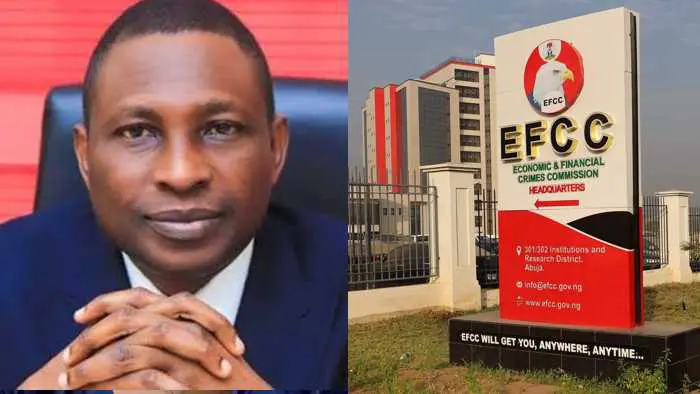The Chairman of the Economic and Financial Crimes Commission (EFCC), Ola Olukoyede, has emphasised the urgent need for a regulatory framework to govern Nigeria’s cryptocurrency ecosystem, citing its potential for fraudulent abuse and money laundering.
He spoke during a courtesy visit by the Stakeholders in Blockchain Technology Association of Nigeria (SIBAN) at the EFCC’s corporate headquarters, Olukoyede, through his Chief of Staff, Commander of the EFCC, Michael Nzekwe.
He described crypto as the “new oil” but warned that without proper oversight, even legitimate operators could face significant challenges.
READ ALSO: Understanding EFCC wanted declarations: Legal processes, implications
“There’s so much money in crypto. The ecosystem is something that needs to be properly regulated,” Olukoyede said.
“The truth is that there’s a thin line between the genuine crypto operators and the fraudsters politically-exposed persons are now using it as a means for laundering money.”
He encouraged cryptocurrency and blockchain technology stakeholders to prioritize investor education and training, noting that groups like SIBAN could play a crucial role in the fight against financial crimes by acting as whistleblowers.
“We can collaborate to stop money laundering. You can blow the whistle. You can be a whistleblower,” he stated.
Earlier, SIBAN’s president, Obinna Iwuno, highlighted the association’s commitment to ethical practices by revealing they have drafted a code of ethics for practitioners based on international best practices.
He said SIBAN has been advocating for regulation since 2018 to prevent capital flight and ensure the sector’s integrity.
Iwuno called for a collaborative partnership with the EFCC to combat investment fraud and money laundering.
He proposed joint efforts in education, awareness campaigns, and anti-scam initiatives, as well as a system for reporting “bad actors” to the commission.
READ ALSO: EFCC declares Sujimoto wanted for money laundering
He also mentioned that SIBAN encourages its operators to implement strict Know Your Customer (KYC) protocols and have a minimum of two compliance officers on their platforms.
“As much as we clamor for regulation, sanity, safety and protection of investors and consumers, we want to also make sure that innovation is not strangulated nor stifled,” Iwuno said.
He stressed that without proper regulations, Nigeria’s fast-growing digital asset and blockchain ecosystem could be exposed to risks like money laundering, terrorism financing, and threats to national security.



